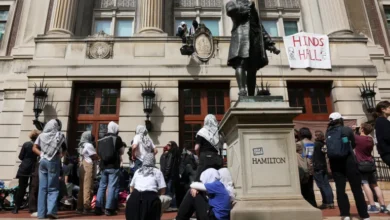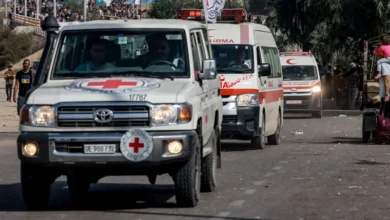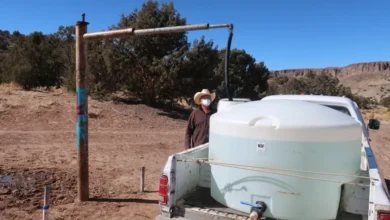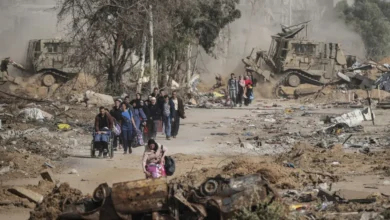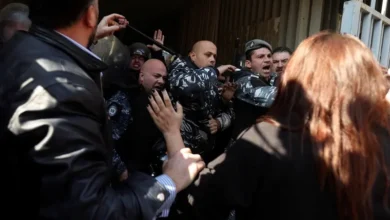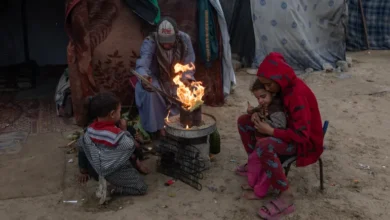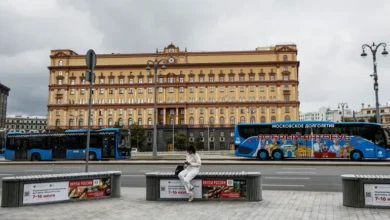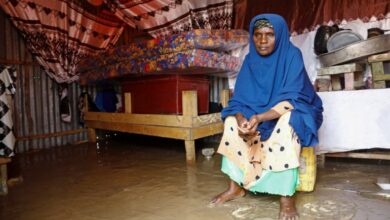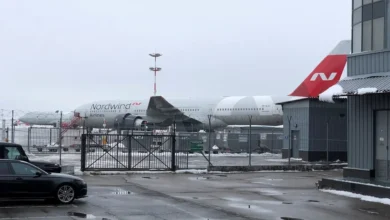‘Military camp’: Palestinian town of Huwara under 55-day Israeli closure
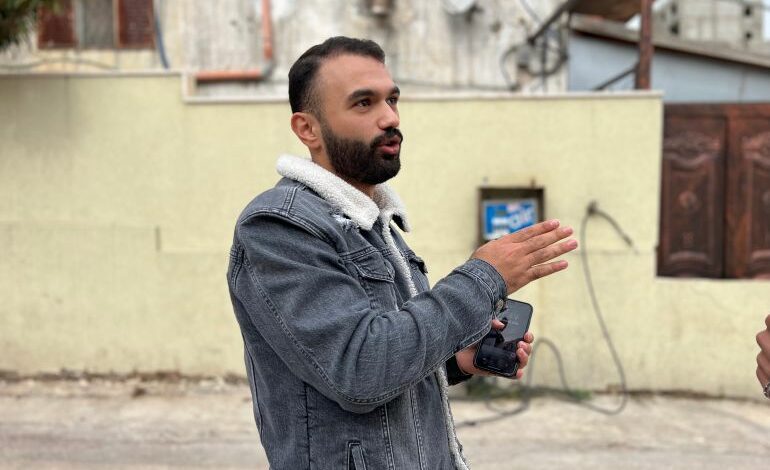
There are at least seven Israeli military points and countless heavily armed soldiers on the mere 6km (3.7-mile) stretch of road that runs through the Palestinian town of Huwara.
For the past 55 days, the town, which sits south of Nablus city, has been under a suffocating closure imposed by the Israeli army and settlers that residents liken to a prison.
On a roundabout in the centre of town, soldiers have taken over a large building under construction and stationed snipers and sandbags on all four floors. Big Israeli flags are draped over the hulking concrete structure.
“Huwara is living through the worst state in recent history,” Mansour Dmaidi, a 65-year-old lawyer and resident told Al Jazeera. “It wasn’t even this bad during the Al-Aqsa Intifada [2000-2005].”
While Huwara has suffered recurring closures over the past year and a half, the restrictions were re-enforced on October 5, days before the Gaza-based armed group Hamas launched an attack on Israeli territory, killing some 1,200 people.
Israeli forces said a Palestinian shot at a settler’s car that day, causing no injuries. The man was shot dead by soldiers at the scene.
Hours later, Israeli settlers attacked homes in Huwara and shot dead a 19-year-old Palestinian, Labib Dmaidi, while he was standing on the roof of his uncle’s house.
Since then, the area has been turned into a ghost town, with life only getting more difficult for the town’s 8,000 residents since October 7, after which Israel killed over 15,000 Palestinians in the besieged Gaza Strip, the majority of them women and children.
Huwara, which lies on the highway running north-south from Jenin to Hebron, was once one of the busiest commercial centres for Palestinians in the occupied West Bank, its local businesses relying heavily on travelling Palestinians from out of town.
Over the past two weeks, about 80 of the Huwara’s 800 businesses have been allowed to open by the army, including gas stations, bakeries, pharmacies and supermarkets.
But the road closures and heavy militarisation of the area, which affects hundreds of thousands of people, means movement and business remain stagnant.
“Huwara was considered the gateway to Nablus. It is an urban commercial centre. And now the town has been transformed into a military camp,” said Mansour.
Divided geography
At least 700,000 Israeli settlers live in fortified illegal settlements among, and surrounding, Palestinian neighbourhoods, cities and villages in the occupied West Bank and East Jerusalem. The vast majority of Israeli settlements are built either entirely or partially on stolen private Palestinian land.
The settlers always come with heavy militarisation and closures. Prior to the events of October 7, there were at least 645 Israeli military checkpoints, roadblocks and other obstacles to Palestinian movement in these areas.
Much like the Shuhada street in the Old City of Hebron, most of the shops in Huwara were forced to shut and residents were forbidden from even walking on the town’s main road until less than two weeks ago.
“We’ve been open for a few days. Look at the state of the town – it is depressing… It makes you want to cry,” said Mansour.
The situation is a microcosm of daily life for Palestinians in the occupied West Bank since then.
As it launched an ongoing military assault on the besieged Gaza Strip, the Israeli army imposed severe movement restrictions on the occupied West Bank.
The further closure of Huwara and the surrounding towns means residents are forced to use mountainous backroads through Palestinian villages to access basic items. What was once a 10-minute journey by car now takes hours.
Abdelrahman Dmaidi, a 21-year-old journalist from Huwara, said it is now essentially a military zone.
Settlers only
On November 12, Israeli authorities opened a “bypass road” in Huwara – a road built for settlers to bypass driving through Palestinian villages. To construct the 7.5km (4.7-mile) road, Israel stole private Palestinian land from the villages of Huwara, Burin, Beita, Awarta, Yasouf, Yatma, and as-Sawiya.
It serves four settlements: Yitzhar, Itamar, Har Bracha and Elon Moreh, with a combined population of only 8,000 settlers.
“The Huwara Bypass Road is being developed for the benefit of some thousand settlers living in an area with approximately one million Palestinians,” rights group Peace Now said.
After the bypass road’s inauguration, the Israeli army decided it would reopen the Huwara main road and allow shops to open, but settlers blocked the decision.
Until days ago when the main Huwara road was opened to extremely limited traffic, both routes were closed to Palestinians.
Mohammad Dmaidi, the father of the slain teen Labib, not only lost his son, but he also has been without work for the past 55 days.
“The settlers until now are demanding that the main road and our shops remain closed, even though a bypass road was opened for them,” Mohammad, who is distantly related to the journalist Abdelrahman Dmaidi, told Al Jazeera.
“There are at least 800 shops. That’s at minimum 1,200 heads of household, meaning that at least 4,000 people are living off of these shops,” explained Mohammad.
“We don’t know where things are headed – no one knows. Everyone is focused on Gaza while Huwara has been suffering for over a year, but no one is talking about it.”

